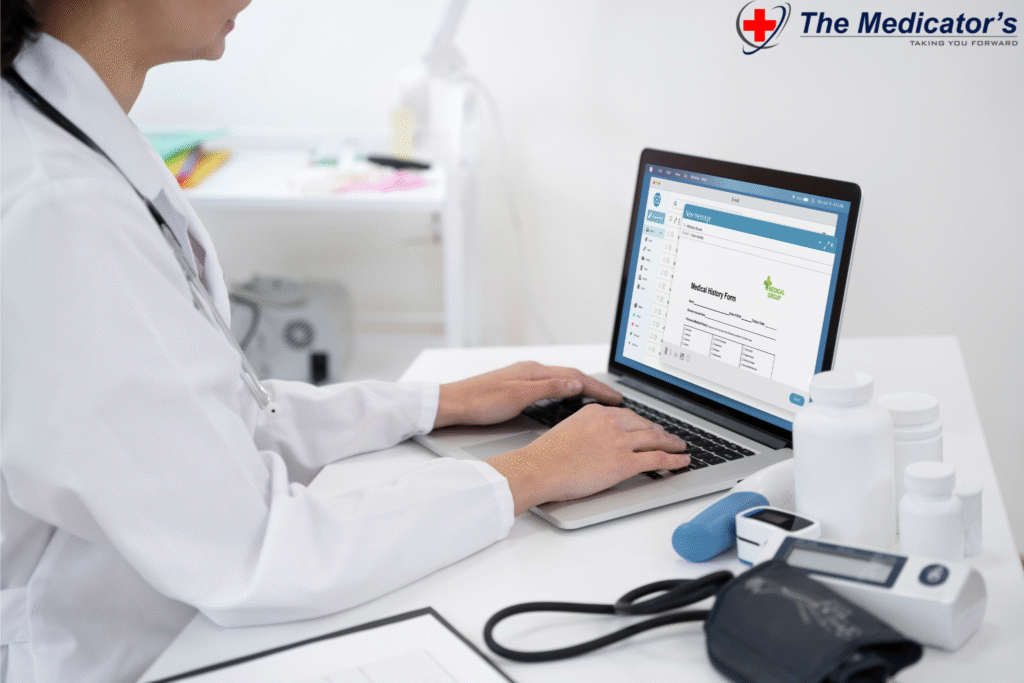Introduction: The Impact of Effective Medical Billing
Medical billing goes beyond the process of making claims- it is the foundation of revenue cycle management. In the case of healthcare providers, billing has a direct impact on cash flow, patient satisfaction, and compliance.
Inefficient billing results in practices that experience delayed payments, rejected claims and revenue losses. Even worse, coding or documentation errors can cause compliance problems, which result in fines and penalties that can be expensive.
That is why good medical billing is the only way to maintain a healthy financial state of your practice without taking unjustified risks.
1) The Role of Medical Billing in Improving Cash Flow
Billing Systems Cash Flow Optimization
An efficient billing mechanism enhances stability in finance. Cloud and automated billing systems assist practices to handle claims effectively.
Key benefits include:
- The quicker submission of claims = the quicker the reimbursements.
- Automation minimizes manual error and administration.
- A smooth process of billing will help the healthcare providers waste less time tracking down payments and dedicating more time to attending to the patients.
2) Reducing Compliance Risks through Accurate Billing
How Accurate Billing Mitigates Compliance Issues
The way in which Accurate Billing can reduce compliance problems. Fidelity is equal to income. Proper billing and coding means no violations, audits, and penalties.
Key points:
- Get rid of up-coding and under-coding mistakes.
- Keep track of the new healthcare standards and payer regulations.
- Proper billing not only allows the claims to be processed more quickly but also helps the providers avoid compliance audits.
3) How Technology Enhances Revenue Cycle Management
The Role of Healthcare Information Systems
Billing becomes more dependable with the help of healthcare information systems such as Electronic Health Records (EHRs). When combined with billing systems EHRs minimize human error and accelerate reimbursement.
Key advantages:
- Integration reduces the number of manual entries.
- Improved collections are supported by better tracking of claims.
- Technology helps in closing the gap between billing offices and patient records, and also facilitates a more efficient revenue cycle management.
4) Best Practices for Reducing Billing Errors
Error Reduction Strategies in Medical Billing
Claim denials and delays are caused by error. To prevent this, the providers need to utilize tools that identify errors prior to submission.
Best practices include:
- Conducting verification with claim scrubbing tools.
- Having frequent auditing to check compliance and minimize risks.
- Less mistakes translate to less rejections and faster payment.
5) Increasing Revenue by the means of appropriate billing
Increasing Billing Accuracy and Revenue Capture
Strategies to consider:
- Pre-claim assessments to verify proper documentation.
- After-claim examination to justify appeals and minimize rejections.
- This will maximize revenue and keep things above board.
6) Patient Payment Collection and Billing Systems
Tools for Streamlining Patient Payments
Patient payments are an increasing revenue component. Provision of easy and convenient payment options produces more collections.
Effective tools include:
- Patient portals that allow easy and safe payments online.
- Installment plans as a way to minimize payment delays and stress among patients.
- When patients are given a choice, they will pay on time.
7) The Reason why Medical Billing is important to outsource.
Outsourcing is a smart provider move.
Billing management can be a costly and time-intensive administrative process that may demand extra personnel and ongoing training. Medical billing should be outsourced to qualified medical billing professionals to enable health professionals to concentrate on the patients and have claims processed properly and efficiently. A reliable partner in billing also stays abreast of new payer policies, minimizing the risk of expensive errors and compliance risks.
Key advantages include:
- Less administrative expenses and staffing issues.
- Availability of expert billing and current compliance knowledge.
- Better collection and reimbursements.
8) Establishing Financial Stability in the Long-run through good billing.
The effect of billing on practice development.
Medical billing is not just a back office activity, directly affecting the survival and expansion of a practice. Those practices with robust billing systems are better able to forecast revenue, make financial choices and reinvest in technology, staff and patient services. An effective billing policy guarantees the stability of healthcare organizations not only in the short-term but also in the long-term.
Key benefits include:
- Regular and foreseeable earnings.
- Greater strategic investment capability.
- Better patient experiences because of stronger financial health.
Conclusion: Enhancement of Financial Performance by effective Medical billing
The secret behind consistent cash flow, reduced compliance risks, and enhanced revenue cycle management lies in effective medical billing. By outsourcing to professional medical billing services
and streamlining payments with The Medicators, healthcare providers can minimize errors and achieve long-term financial stability.
Frequently Asked Questions (FAQs)
1) What is cash flow in medical billing?
Medical billing cash flow is the flow of money into a health care practice due to insurance reimbursement and payment of patients.
2) So what is the significance of cash flow in healthcare?
A strong cash flow will indicate that providers can manage their expenses, salaries and wages and continue providing high-quality care.
3) What would enhance the management of the revenue cycles through medical billing systems?
They accelerate claims, minimize mistakes, and make reimbursements in time.
4) What type of billing system is best for reducing errors?
The best systems are automated and cloud based because they are accurate and efficient.
5) How can healthcare providers reduce compliance risks in medical billing?’
Through proper coding, keeping up with regulations and performing regular auditing.
6) What are the common types of medical billing systems?
On-premises, paper-based and cloud-based billing systems.
7) What is the most common reimbursement method in healthcare?
The most common method is the one of fee-for-service.
8) Which healthcare information systems are best for billing and coding?
Best results are obtained with EHR systems in combination with billing software.
9) How do patient payment portals help with medical billing?
They allow the patients to make payments more conveniently, easily and quickly.
10) What are the benefits of using automated billing systems for medical practices?
Automation eliminates mistakes, accelerates claims, enhances compliance, and enhances cash flow.









